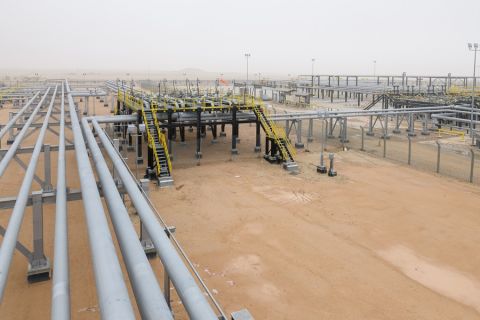Presidio Petroleum LLC is in advanced talks to acquire around 5,000 shale gas wells from U.S. oil producer Exxon Mobil Corp., two people familiar with the matter told Reuters on Dec. 20.
Exxon Mobil’s XTO Energy unit has been seeking buyers for its holdings in the Fayetteville Shale in Arkansas, part of the company’s drive to raise cash by shedding unwanted assets. Terms of the talks between Exxon Mobil and Presidio Petroleum were not immediately available and Exxon Mobil and Presidio did not immediately respond to Reuters requests for comments.
Presidio, a closely-held producer backed by Morgan Stanley Energy Partners, buys mature oil and gas fields and strives to boost output.
Since its launch in 2017, Presidio has acquired assets located in the Anadarko Basin of Texas, Oklahoma, and Kansas from Midstates Petroleum, Apache Corp. and Templar Energy. The company recently closed on an inaugural issuance of asset-backed securities expected to enable the Fort Worth, Texas-based team to pursue additional acquisitions.
Deal talks for the XTO Fayetteville assets could still fall apart and Exxon Mobil could turn to another buyer or decide to retain the properties, the people said. They requested anonymity as the discussion are private.
Exxon Mobil had acquired the Fayetteville assets in 2010 for $650 million during a shale boom that would reshape the U.S. energy landscape.
The wells were among natural gas properties Exxon Mobil last year said it wanted to sell. It established a data room in November for potential buyers and put about 5,000 natural gas wells in the Fayetteville Shale on the block in August.
The producing properties were valued at that time at between $400 million and $500 million, according another person familiar with the matter. U.S. gas prices are up 67% year to date, and were trading about $3.83 per million British thermal units on Dec. 20.
Exxon Mobil has indicated it aims to close any sale in January. The properties’ shale gas production has declined by half since 2016, to around 227 MMcf/d in the first half of this year, according to a marketing document seen by Reuters.
Editor’s note: The original version of this story from Reuters includes additions and edits by Hart Energy staff.
Recommended Reading
FERC Again Approves TC Energy Pipeline Expansion in Northwest US
2024-04-19 - The Federal Energy Regulatory Commission shot down opposition by environmental groups and states to stay TC Energy’s $75 million project.
Eversource to Sell Sunrise Wind Stake to Ørsted
2024-04-19 - Eversource Energy said it will provide service to Ørsted and remain contracted to lead the onshore construction of Sunrise following the closing of the transaction.
Shipping Industry Urges UN to Protect Vessels After Iran Seizure
2024-04-19 - Merchant ships and seafarers are increasingly in peril at sea as attacks escalate in the Middle East.
Paisie: Crude Prices Rising Faster Than Expected
2024-04-19 - Supply cuts by OPEC+, tensions in Ukraine and Gaza drive the increases.
Brett: Oil M&A Outlook is Strong, Even With Bifurcation in Valuations
2024-04-18 - Valuations across major basins are experiencing a very divergent bifurcation as value rushes back toward high-quality undeveloped properties.




